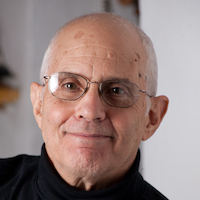Quiet Beatle, Outspoken Yogi.
In the 200 years that Eastern spiritual traditions have been filtering into American life, the disseminators have included great artists as well as gurus, yoga masters, scholars and scientists.
We have absorbed the core principles of the teachings arising from Hinduism and Buddhism through the poems of T.S. Eliot, W.B. Yeats, Allen Ginsberg and Gary Snyder; the novels of Herman Hesse, Somerset Maugham and J.D. Salinger; the films of Satyajit Ray and Merchant-Ivory (not to mention “Gandhi”); the music of Ravi Shankar, John Coltrane and Philip Glass; and through various forms of dance, painting and sculpture.
But no artist has ever done more for this cross-cultural pollination than George Harrison. With Martin Scorsese’s documentary about the quiet Beatle running on HBO now, and the tenth anniversary of this death coming soon, it is time to appreciate Harrison as a teacher and a transmitter.
The most conscientiously spiritual of the Beatles, Harrison learned from a number of well-known gurus, living and dead: Swami Vishnudevananda, whom he met when the Beatles were filming “Help!” in the Bahamas; Paramahansa Yogananda and Swami Vivekananda, whose books he read while studying sitar with Ravi Shankar in India; A.C. Bhaktivedanta Swami, whose Hare Krishna chanting Harrison both practiced and recorded; and most famously, Maharishi Mahesh Yogi, from whom he and the lads learned Transcendental Meditation, triggering a media frenzy that put words like mantra, guru and ashram into the vocabulary.
Once he found value in yogic teachings, Harrison promoted India’s spiritual message with the same passion he brought to his guitar. When Beatles’ manager Brian Epstein died, George’s funky rendering of reincarnation was heard around the world: “There’s no such thing as death anyway. I mean, it’s death on a physical level, but life goes on everywhere, and you just keep going up really.” When the Fab Four departed for India, George told the press why: “For every human, it is a quest to find the answer as to ‘Why are we here? Who am I? Where did I come from? Where am I going?’ That, to me, became the only important thing in my life. Everything else is secondary.” When he discovered Krishna bhakti (the devotional form of yoga), Harrison funded the London Hare Krishna temple and the printing of one of Bhaktivedanta’s books, for which he penned a foreword. He also produced and performed on an album of chants called “Radha-Krishna Temple” that reached a global audience.
Harrison’s urge to express what he’d discovered in Hindu teachings is palpable in some of his lyrics. Listen to “Within You Without You” on the Sgt. Pepper album, and you’ll hear lines like “Try to realize it’s all within yourself” and “When you’ve seen beyond yourself, then you may find peace of mind is waiting there.” I think of the song as the first rock ‘n’ roll Upanishad. But it is in his post-Beatles solo career that George the guru steps into center stage.
On “My Sweet Lord,” the first number one single by an ex-Beatle, Harrison voices the yearning of a God seeker: “I really want to see you,” he cries, “I really want to know you … I really want to be with you …” As he intones variations on “my sweet Lord,” the chorus sings “Hallelujah,” then Hare Krishna, then a traditional verse invoking Brahma, Vishnu, and Shiva (called Maheswara). Harrison said he wanted to show that Christian and Hindu sounds of praise “are quite the same thing.”
On “Give Me Love,” from the album “Living in the Material World” (the title of Scorsese’s film), he again gives voice to the spiritual yearning: “Give me love / Give me peace on earth / Give me light / Give me life / Keep me free from birth.” “Beware of Darkness” warns of the dangers of worldly attachment, counseling us to beware of “falling swingers” and “thoughts that linger.” On “Awaiting on You All” he tells us: chant the names of the Lord and you’ll be free. He advises us to learn “The Art of Dying,” a classic metaphor for transcending bodily identity, and argues for reincarnation: “There’ll come a time when most of us return here / Brought back by our desire to be / A perfect entity.”
At one point, learning that his fans were getting turned off by his missionary zeal, Harrison toned it down. But he didn’t hold back when interviewed. When John Lennon was murdered, millions heard George reference the Bhagavad Gita. On other occasions, as in a 1987 profile in People magazine, he proclaimed, “The purpose of our life is to get to God-realization,” and “there’s a science that goes with that.” And on his posthumously released album, “Brainwashed,” he returns to sacred themes, among other things drawing from a yogic text: “The soul does not love, it is love itself. It does not exist, it is existence itself. It does not know, it is knowledge itself.”
For all these reasons, Harrison was not only a musical hero to millions but also a spiritual mentor to a great many seekers. It was fitting that his ashes were scattered in the Ganges in accord with Hindu tradition.


 Share on bsky
Share on bsky




Read 15 comments and reply